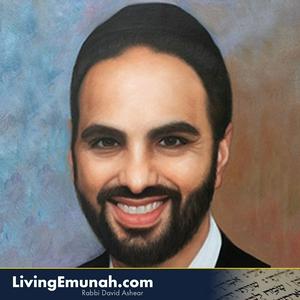When Hashem Sends a Message
A man told me that his wife had been a little negligent about something he had asked her to do multiple times. Unfortunately, as a result, their children were placed in a potentially dangerous situation. Baruch Hashem, everything worked out in the end, but he was extremely upset. He felt his wife had put their children in danger unnecessarily, and he had every reason to be shaken. Later that same day, while at home, he decided to learn a bit. The only sefer easily available was an ArtScroll volume of Masechet Shabbat. He randomly opened it to daf 32 ( ל״ב ), where the Gemara discusses how serious it is to place oneself in a dangerous situation. Reading it made him feel validated in how upset he was with his wife. But then, just a few lines later, he read something that shook him to the core: the Gemara says that someone who neglects learning Torah causes danger to their children. He read the line again and again. Suddenly, it hit him — he himself had been negligent in learning. He had never truly committed to a regular seder, always coming up with excuses, telling himself it wasn't realistic right now. And then he remembered something else. Just the day before, he had randomly chosen to listen to a shiur from a rabbi he had never heard before — a class recorded over ten years ago, out of thousands he could have selected. It was on the topic of Elul and Teshuvah, even though we're now in the month of Av. And incredibly, that rabbi spoke directly to the exact excuse this man had been telling himself for years. The rabbi explained why that excuse doesn't hold up, and how important it is for every Jew to carve out time to learn — even in a busy life. Now, in the span of 24 hours, Hashem had sent him three clear messages: His wife's mistake led to a danger that got him very worked up. The Gemara he "happened" to open addressed his exact situation showing him he was more guilty than his wife. The shiur he "randomly" chose directly called out his long-held excuse. He said, "I couldn't believe the hashgachah pratit. It was all connected. Hashem was clearly sending me a message, and this time, I didn't want to miss it." He picked up the phone, called his rabbi, and said, "It's time. Please help me start a serious learning schedule." Hashem speaks to us in different ways, at different moments. But it's up to us to open our hearts and pay attention to the message. Another man shared with me that from the time he graduated high school until the age of 35, he didn't put on Tefillin even once. He had drifted far from the path he was capable of being on. He loved his children dearly and would do anything for them. One day, his wife gently said, "Would you mind putting on Tefillin just for a few minutes each day — not for yourself, but so the kids can see their father wearing Tefillin?" That comment hit him like a ton of bricks. He realized how far he had gone — so far that his wife had to ask him to put on Tefillin, not even for Hashem, not even for himself, but just as an example for the kids. The very next day, he put on his Tefillin. He said he felt something special — something he hadn't felt in years. Slowly, one small step at a time, he began to come back. He started attending shul. He began learning Torah. Today, that same man has children learning full time, and he himself is growing stronger and stronger in his Avodat Hashem every single day. He is grateful beyond words for that moment that woke him up — that small comment that sparked something great. Every person is given opportunities for inspiration. Some are subtle, some are loud. Hashem wants all of His children close to Him, and He lovingly sends each one the exact kind of message they need. But it's our decision whether or not we act on it. We are getting closer and closer to the time of Yemei HaMashiach, when Hashem will fully reveal Himself to the world. Then, the tests we face now — the quiet, hidden tests of Emunah and consistency — will no longer exist. There will be no more confusion, no more doubt. But also, no more chance to grow through struggle. Now is the time. Now is the chance to grow in Torah, to grow in mitzvot, to become the people we are meant to become. Let's take the messages from Hashem and let them move us forward. Even one step today can change our entire life. And that one step can affect generations.


